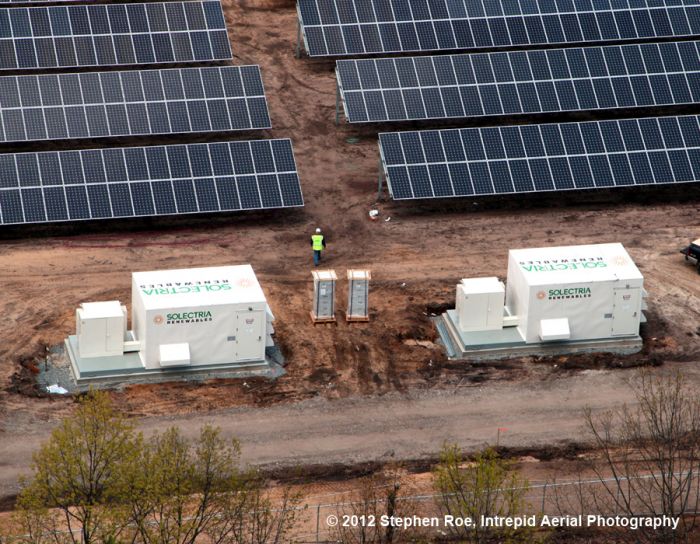Power REIT, a real estate trust completes first solar acquisition
 Power REIT is a real estate investment trust firm specializing in renewable energy acquisitions. The company announced Jan. 7 that it completed its first purchase of a solar project when it closed on its roughly $1 million fee-simple acquisition of the 54 acres where the 5.7 megawatt Salisbury Solar Farm in Salisbury, Mass., is located.
Power REIT is a real estate investment trust firm specializing in renewable energy acquisitions. The company announced Jan. 7 that it completed its first purchase of a solar project when it closed on its roughly $1 million fee-simple acquisition of the 54 acres where the 5.7 megawatt Salisbury Solar Farm in Salisbury, Mass., is located.
While the company has previously made such investments in wind farms, this was its first investment in a solar farm, said Power REIT Vice President Arun Mittal. “We have a lease in place, so the solar farm pays us a lease payment and that’s our return on the investment,” he said. The acquisition is immediately accretive to funds from operations and the company will pay a 10 cents per share dividend to shareholders on Jan. 14.
Under the agreement Power REIT acquired the property subject to the existing roughly 21 year lease agreement with Salisbury Solar Farm, which has annual cost of $80,800 and has a built in 1 percent annual escalation. Power REIT will pay the property tax. The solar farm has 20-year power purchase agreements (PPAs) with Triton Regional School District, the city of Newburyport and Salisbury. The returns from the PPAs will provide revenue to the project owner as well as to Power REIT.
“Our goal is to invest in real estate broadly and in infrastructural assets that qualify as real estate and that can support renewable energy,” he said. While the company has been most focussed on wind assets, it is also interested in investing in solar, transmission, geothermal, hydro and other renewable energy projects where it makes sense.
As an REIT the publicly-traded company pays out dividends to purchasers of its stock to maintain its tax status, Mittal said. Because it invests in long-term real estate assets it provides long-term capital to its stockholders and attracts investments from individual investors to institutional investors. “We’re looking to put money to work, we will invest in the projects that are already up and running,” Mittal said. For instance, the Salisbury solar farm has been operational since the summer of 2012. But the company will also consider partnering with developers in other cases.
It’s another newer mechanism to help lower the cost of capital for solar or renewable energy projects. “We think that given the cash grant is no longer in place, a lot of developers the size were’e looking at are looking at tax equity financing,” Mittal said. “Although we can’t invest in the whole project, we think we can drive down the overall added cost of capital,” he said.
This year the company could expand its purchasing of such lands. “We’re seeing a lot more opportunity in transactions that are similar to this one,” Mittal said. “It’s really about finding deals that make sense for us and for the developers.”



